
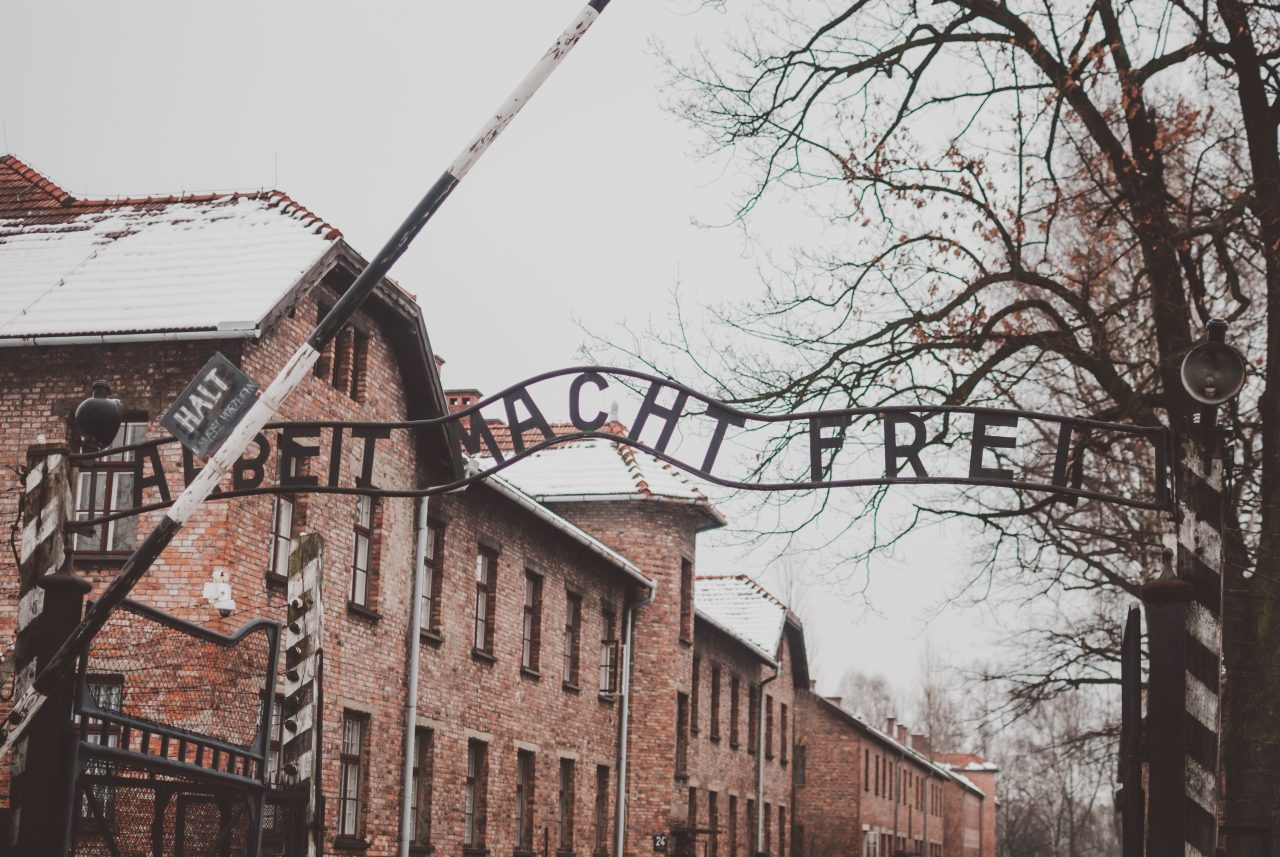
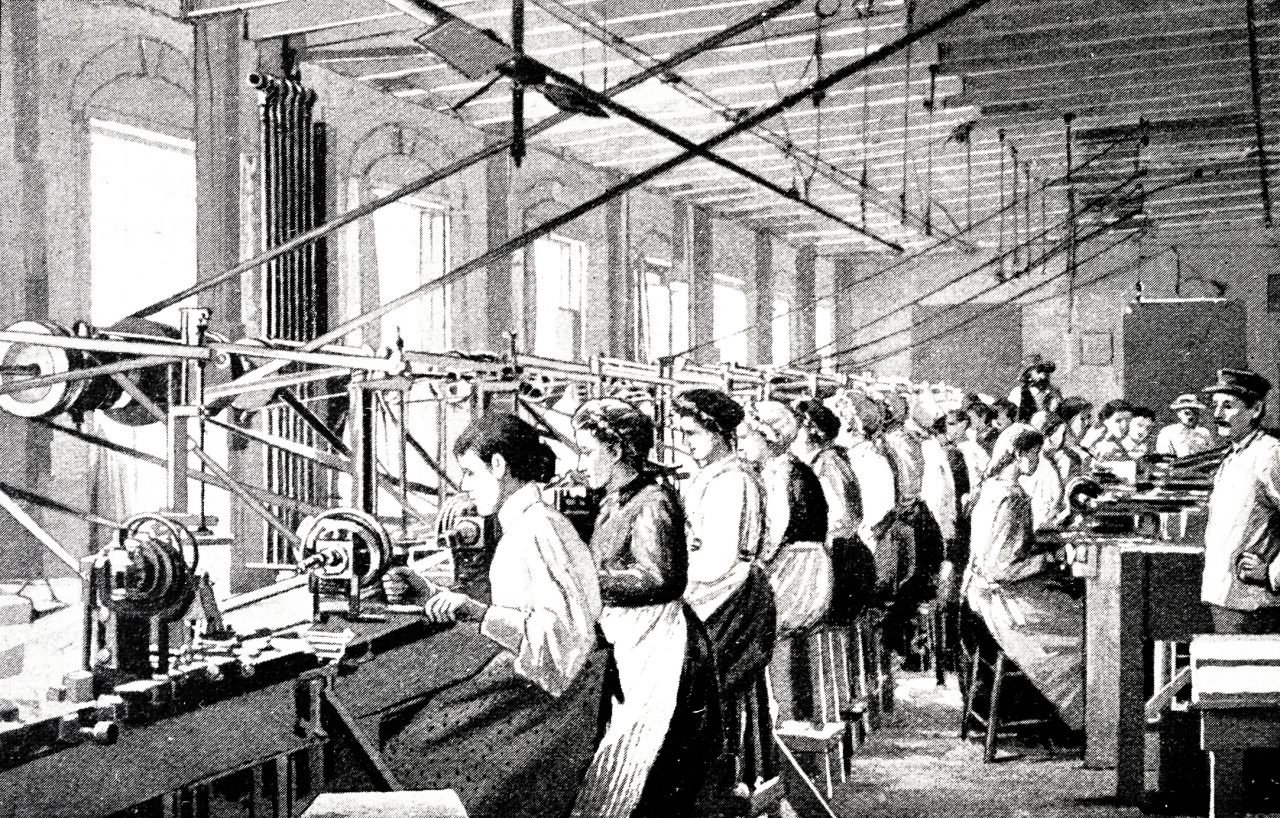
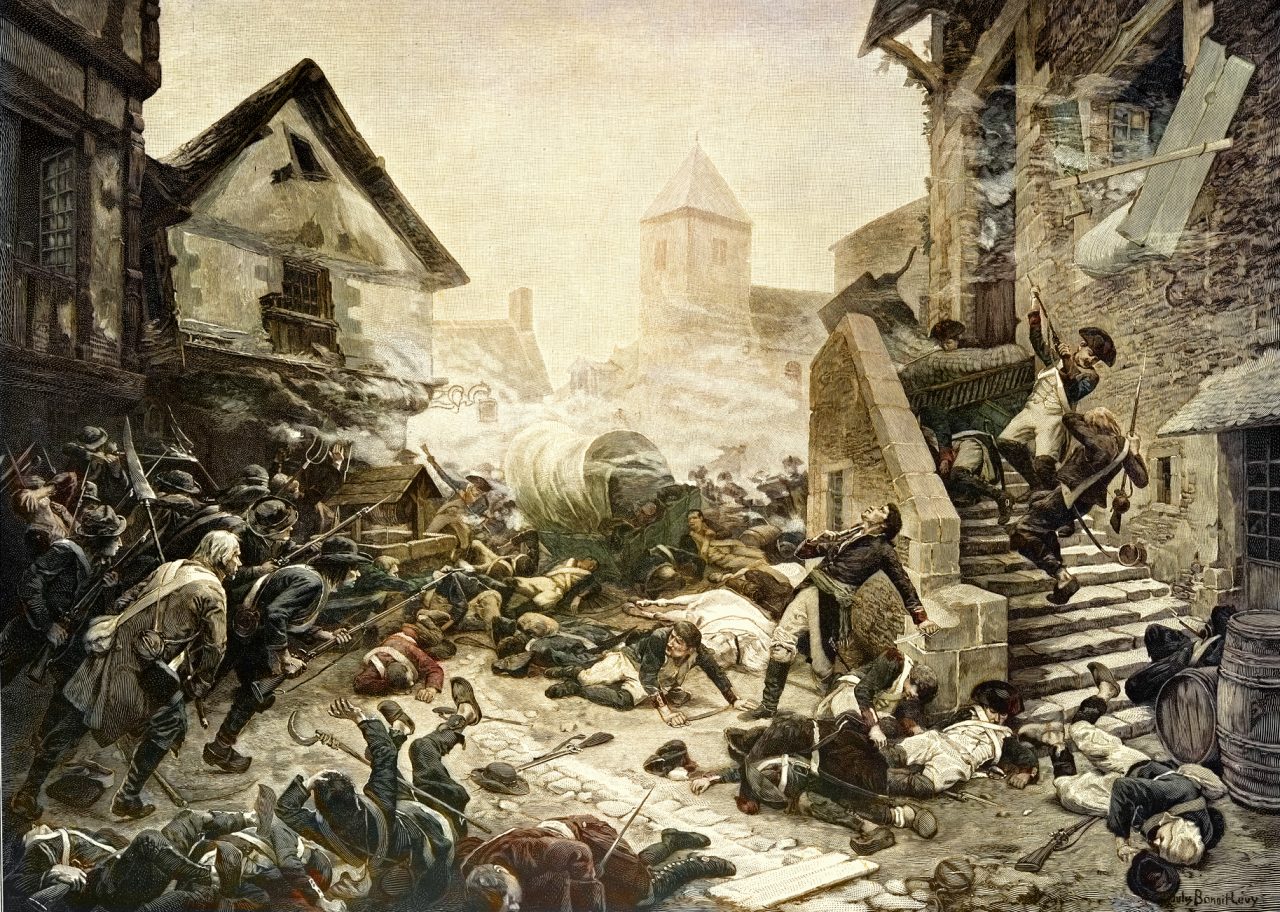
Kampene under den Franske revolusjonen
The most common ideologies:
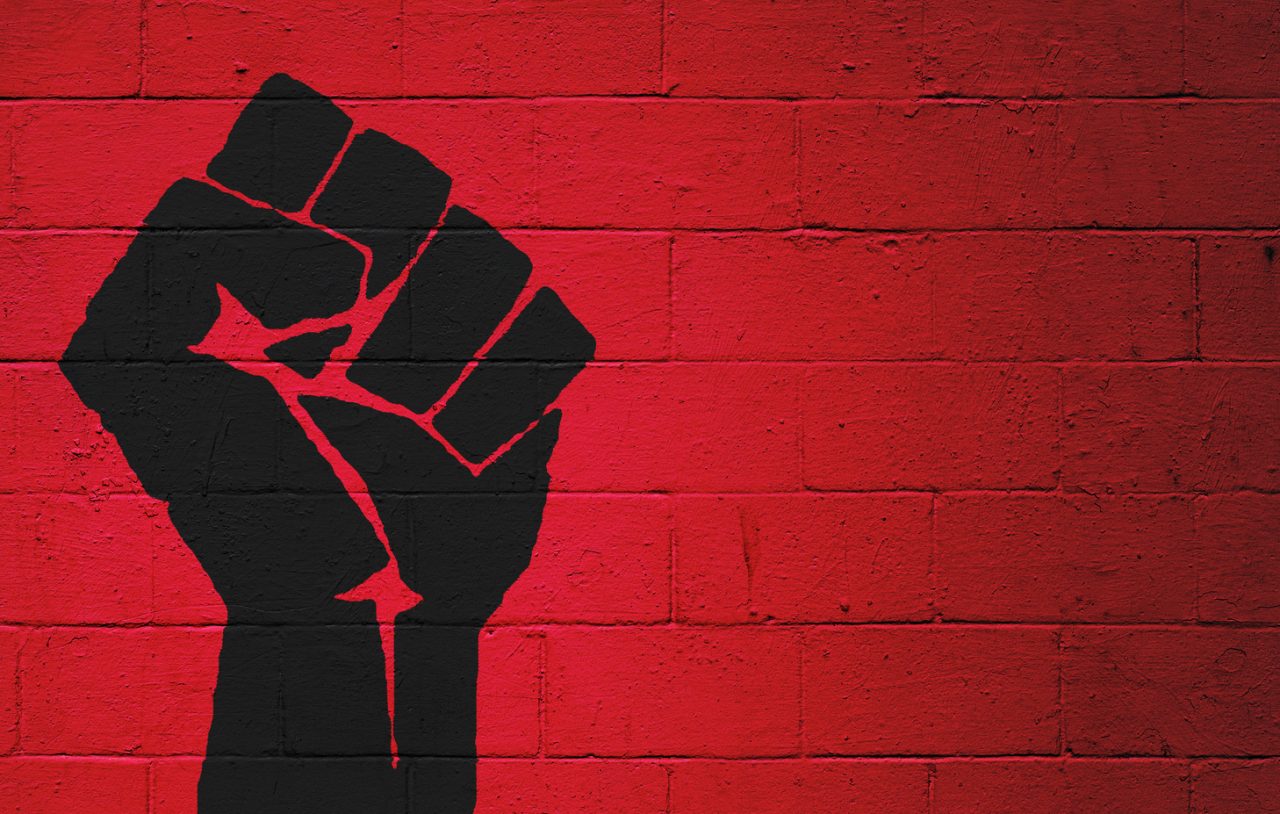
En knyttet neve malt på en rødmalt vegg
Other ideologies
- Anarchism looks at the state as unwelcome and harmful. They believe that society can govern itself without any political or hierarchical structure.
- Green ideology aims to manage nature and the climate in the best possible way. This can be done through democratic processes, peace work, and pacifism.
- Feminism is not one ideology, but rather a set of ideologies. Common features are equality and justice for women. Today, the right to decide on abortion is an important and topical issue in many places across the world.

Vindmøller
Fundamentalism
Fundamentalism is a religious ideology that gives great importance to holy scriptures. The Jews have the Tanakh, the Christians have the Bible and the Muslims have the Koran. Fundamentalists try to understand the texts to highlight the original message of the texts.
Fundamentalists are missionaries and often use technology to help spread their messages. Politics or religions that threaten their ideology are considered enemies and armed conflicts may arise.
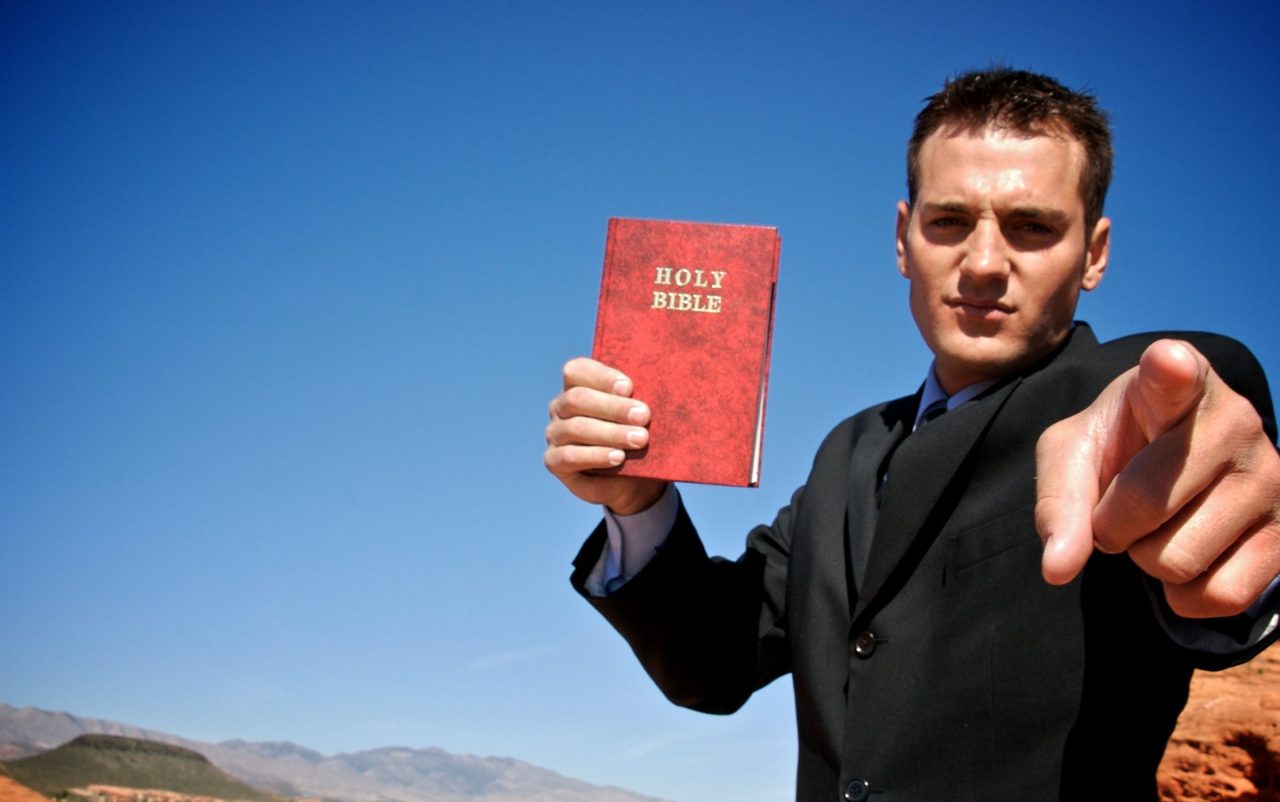
Mann peker og holder opp en bibel
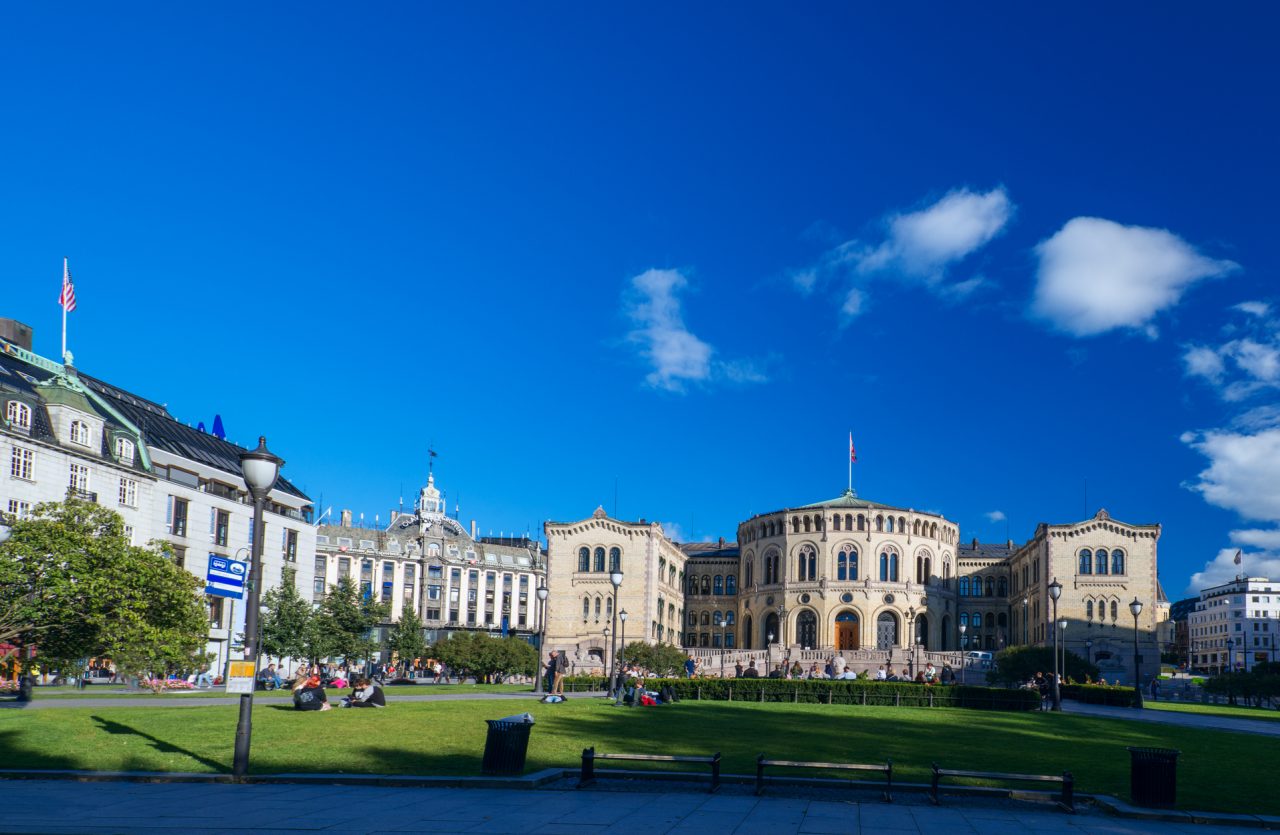
Stortinget
General Elections
Every five years there is a general election held in the UK. All UK citizens over the age of 18 are eligible to vote for the political party that they feel does the best possible job for the people of the UK.
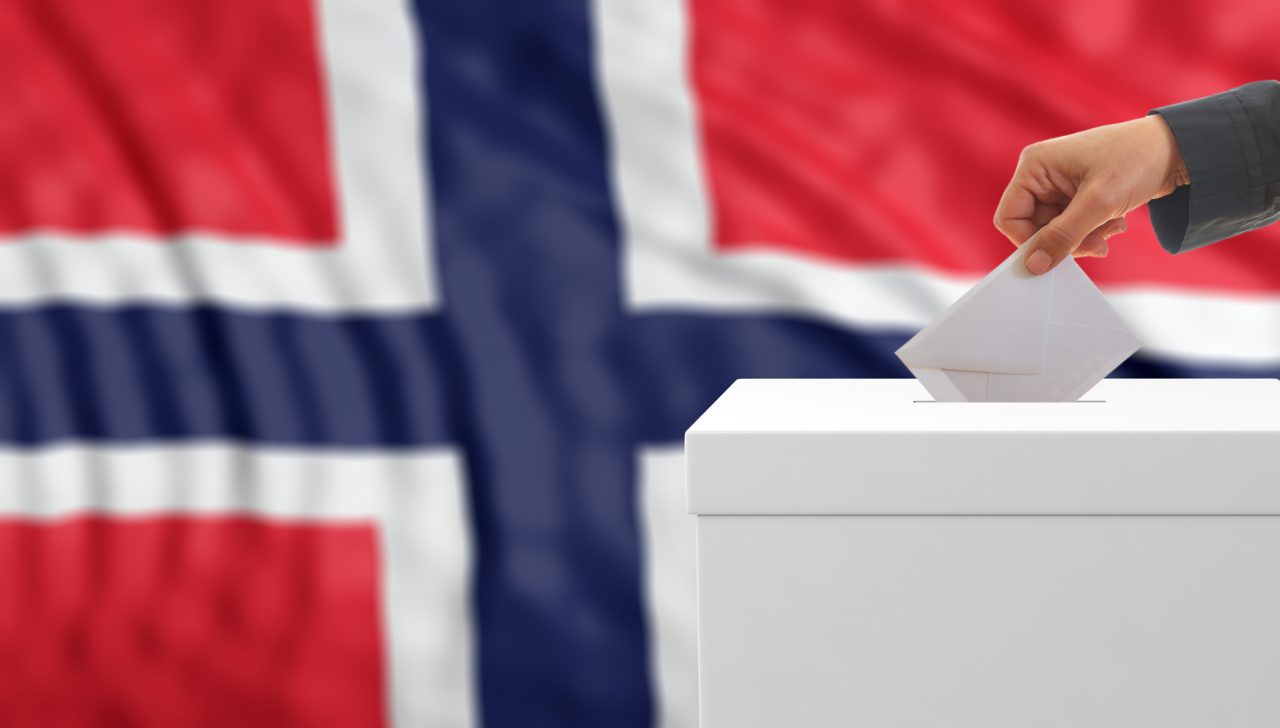
En som stemmer på stortingsvalget med det norske flagget i bakgrunnen
Sources:
- NDLA (30.04.21): Hva er en ideologi?
https://ndla.no/subject:43/topic:1:198184/topic:1:198187/resource:1:197124?filters=urn:filter:c621fe47-6d28-4ecd-95cb-ad641382d8f4
- Mennesket.net (30.04.21): Politiske ideologier
https://www.mennesket.net/fordypningsemner/sosiologi-og-sosialantropologi/fordeling-av-goder/politiske-ideologier/
- Viktig.net (30.04.21): Hva er ideologi?
https://viktig.net/religion/hva-ideologi
- Jupskås, Anders Ravik; Garvik, Olav: Miljøpartiet de grønne
Hentet 30. april 2021 fra https://snl.no/Miljøpartiet_De_Grønne
- Vogt, Kari: fundamentalisme
Hentet 30. april 2021 fra https://snl.no/fundamentalisme
- NDLA (30.04.21): Hva står de politiske partiene for?
https://ndla.no/nb/subject:3/topic:1:168542/topic:1:173292/resource:1:11473?filters=urn:filter:19dae192-699d-488f-8218-d81535ce3ae3
- Stortinget (30.04.21): Politiske partier
https://www.stortinget.no/no/Stortinget-og-demokratiet/stortinget-undervisning/voksenopplaring-for-innvandrere/politiske-partier/
- Wikipedia (16.09.2022): Politics of the United Kingdom
https://en.wikipedia.org/wiki/Politics_of_the_United_Kingdom#:~:text=The%20British%20political%20system%20is,party%2C%20along%20with%20the%20Conservatives
Media rights:
-
-
Getty Images
-
Getty Images
-
Getty Images
-
Getty Images
-
Getty Images / Arkikon (CC BY-SA 4.0)
-
Getty Images
-
Getty Images
-
Getty Images
-
Getty Images
-
Getty Images
-
Getty Images
-


